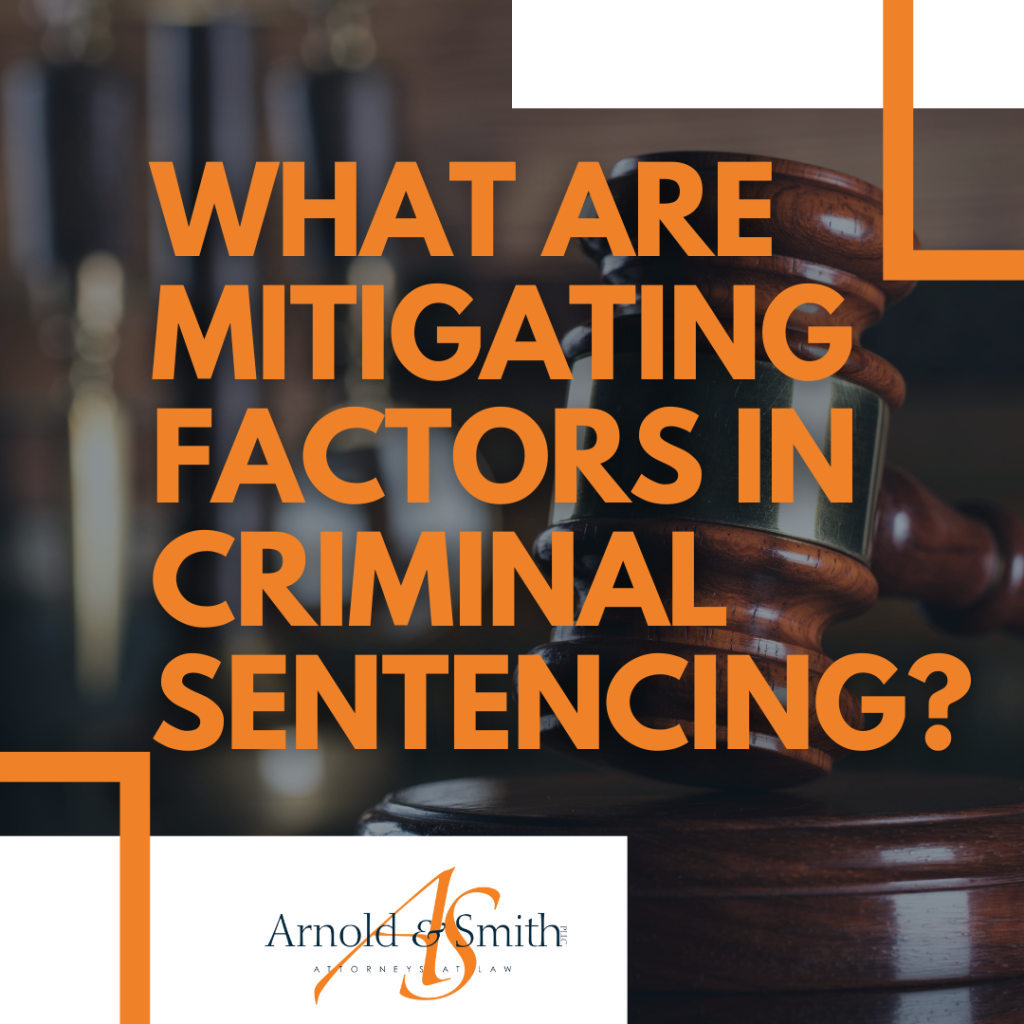 What are Mitigating Factors in Criminal Sentencing?
What are Mitigating Factors in Criminal Sentencing?
After a person has been found guilty or pleads guilty to a crime, the next step is sentencing. The law generally provides guidelines that the judge will use as a starting point for the sentence. Punishment often includes a combination of jail time, fines, probation, community service, and more. The judge will use mitigating factors to determine whether the defendant should receive a lighter punishment. Your attorney will present mitigating factors to the court to try to ensure that you receive an appropriate sentence.
Definition of Mitigating Factors
Mitigating factors or circumstances are facts regarding a specific case that may reduce or lessen the severity of culpability in a criminal case. Mitigating factors are not issues that justify or excuse a criminal offense but instead are matters that are used solely in the sentencing phase of the case. Mitigating factors are important because they can help a defendant to obtain a less severe sentence. Mitigating factors may balance some aggravating factors if they are present.
Examples of Mitigating Factors
There are many mitigating factors that may apply in a particular criminal case. Generally, mitigating factors may include the ability of the defendant to reform, substance addiction at the time of the offense, and past good deeds of the defendant. North Carolina law lists 21 possible mitigating factors that could be presented to the court when determining a sentence. Some of these factors include:
- Defendant is an upstanding citizen and a contributing member of the community
- Defendant takes responsibility for the crime
- Defendant has a positive work history
- Defendant successfully completed or is enrolled in a drug or alcohol treatment program
- Defendant made full restitution

Sometimes, a defendant may be called as a witness, and in those cases, the judge may take that into consideration during sentencing. Your defense attorney will review all the details of your life to highlight any mitigating factors to the court. The judge may use any factors that he or she deems as mitigating when considering the sentence of a defendant.
How Mitigating Factors Apply
Mitigating circumstances may apply on a case-by-case basis. The court is responsible for deciding whether a mitigating factor applies and, if so, how it will impact the sentence. Some mitigating circumstances may have more weight than others when it comes to sentencing. Mitigating factors can reduce some aggravating factors if they are present. Each case is different, and each defendant has a unique set of circumstances that will impact how the judge applies mitigating factors in the sentencing.
Your defense attorney will help guide you through the legal process and will let you know of anything you can do to mitigate a sentence if you are found guilty. For instance, if you were under the influence of drugs or alcohol at the time of the offense, you can seek treatment. There may be other things you can do to show that you are reforming. If you or a loved one has been charged with a crime, you will want to talk to a criminal defense lawyer as soon as possible. Contact our legal team at Arnold & Smith, PLLC, at (704) 370-2828 to discuss your legal needs today.
The criminal defense attorneys at Arnold & Smith, PLLC make it their mission to zealously defend their clients on a wide range of criminal matters at both the state and federal levels. These matters may include any charge from traffic offenses; DWI/DUI; drug charges (from simple possession to possession with intent to distribute and trafficking); gun permit denials; weapons offenses; and property crimes (larceny, breaking and entering, robbery, fraud, embezzlement, white collar offenses); to sexually related offenses (indecent exposure; sexual assault, crimes against nature, removal from sex offender registry); and violent crimes (domestic violence; assault; manslaughter; homicide, murder). Other legal issues that Arnold & Smith, PLLC criminal clients may be facing include restraining orders, restraining order and probation violations, expungements; appeals; and immigration issues related to criminal charges. Our criminal defense attorneys are passionate about ensuring that individuals empower themselves by being informed about their constitutional rights and stand at the ready to fight in the defense of those facing criminal charges.
Source:
https://www.ncleg.net/enactedlegislation/statutes/html/bysection/chapter_15a/gs_15a-1340.16.html
Image Credit:
https://www.freeimages.com/photo/documents-1427202
See Our Related Video from our YouTube channel:
https://www.youtube.com/user/ArnoldSmithPLLC/videos
See Our Related Blog Posts:
 Charlotte Criminal Lawyer Blog
Charlotte Criminal Lawyer Blog


